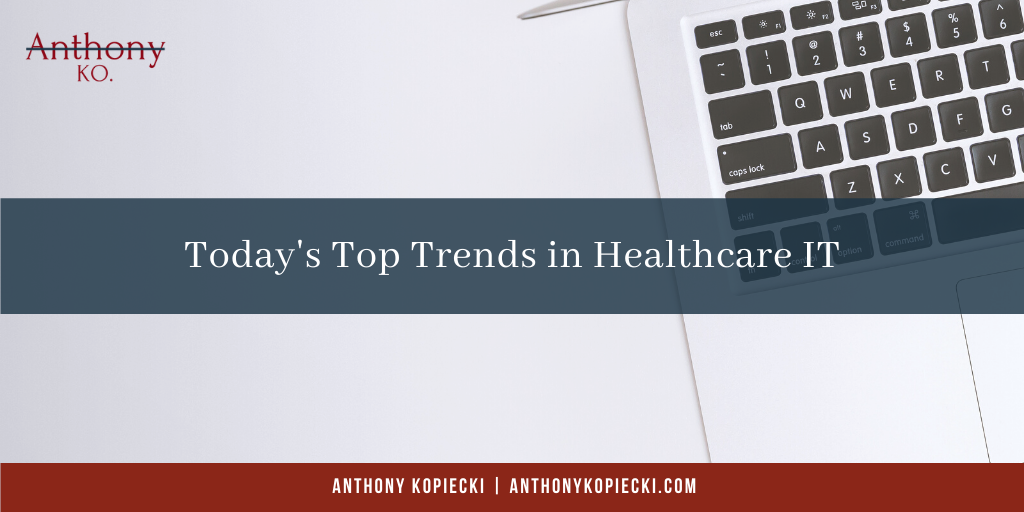Technology can vastly improve healthcare by increasing the productivity of employees, streamlining billing processes, and providing additional tools to physicians. In this frequently changing world, keeping track of the latest trends in technology is vital to success in the field of healthcare. From artificial intelligence to blockchain and beyond, these changes affect everyone’s life, even if indirectly.
Importantly, technology and innovation do not always need to occur together, as changes can also be sparked via group discussion, community activities, and thought-provoking speakers. Patients are demanding more user-friendly approaches to healthcare, which often occur through the involvement of big tech companies.
Voice transcriptions are another important trend in healthcare IT right now. Transcriptions during patient visits makes for better interactions between patient and provider. Having a digital voice recording of what happened during patient visits makes it easier to gather accurate healthcare information. It also gives providers the opportunity to provide the best and personalized healthcare as possible. Doctors will be able to interact with patients while documentation occurs in the background.
Still, it is hard to access records outside of a patient’s health system, and patients need more price transparency from hospitals as well as a non-aggressive billing approach. In streamlining the revenue cycle, current regulations are a significant obstacle to technology that could help, and more teamwork between IT professionals and leaders is needed to aid in this streamlining. A primary way to do this is to incorporate blockchain; hospitals should look to other thriving industries that already implement it. Blockchain could allow transactions between the patient and the hospital to occur within seconds rather than weeks.
Artificial intelligence is begging to enter the field of healthcare, providing a fantastic way for professionals to make decisions. Systems seeking to include AI should focus on the return on investment and why it is a potential tool. Healthcare organizations that want to use AI will need to create special cases that pertain to the hospital’s needs. It is important to remember that AI cannot replace doctors and billers, but that it can only add more tools to make their work more productive.
Changes in healthcare technology can be beneficial to both professionals and patients. They provide doctors with more tools to interact with and diagnose patients more efficiently. The technology offers hospitals and health systems a more natural way to bill patients while eliminating transparency. Of course, keeping track of these trends is vital to knowing how to work in or consume services from healthcare organizations.

